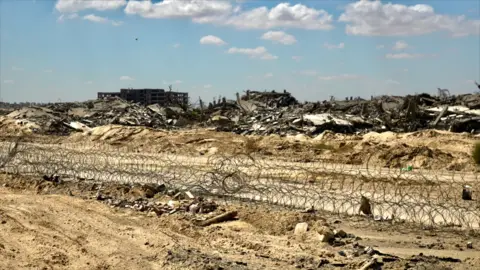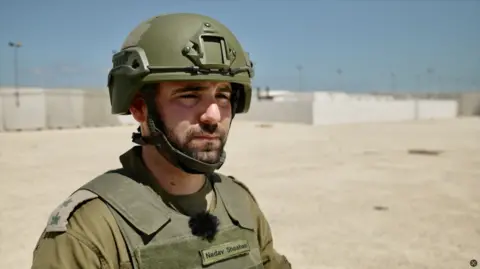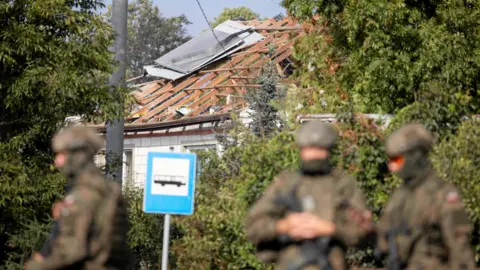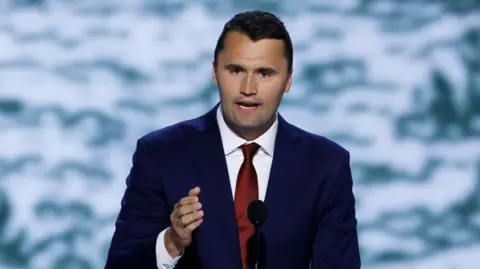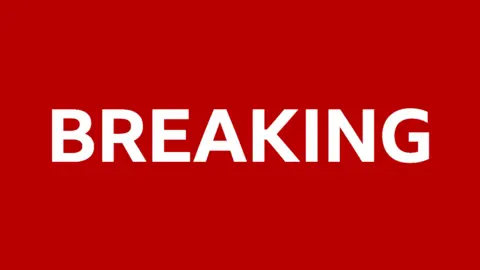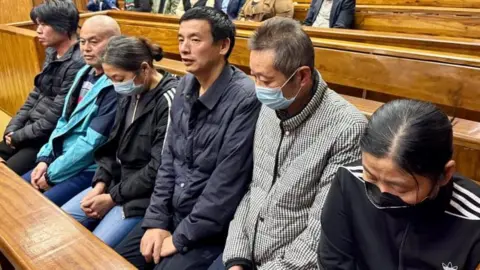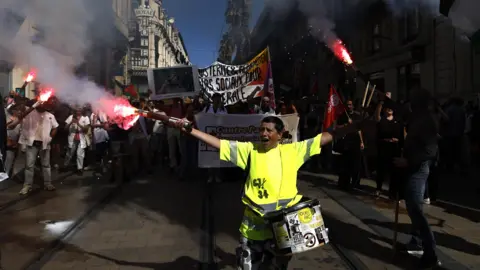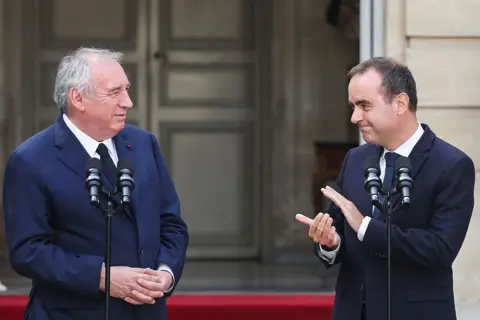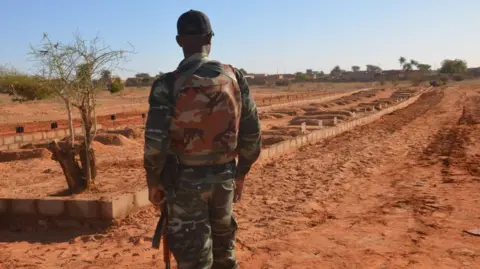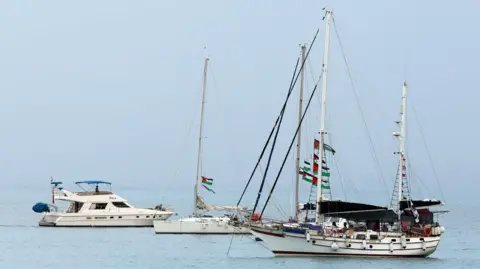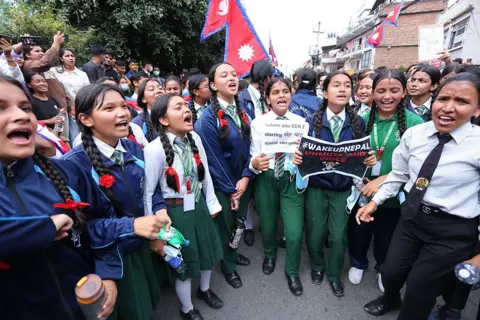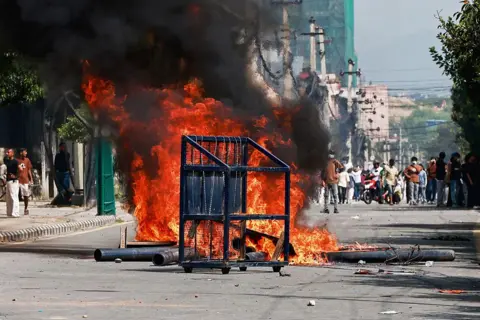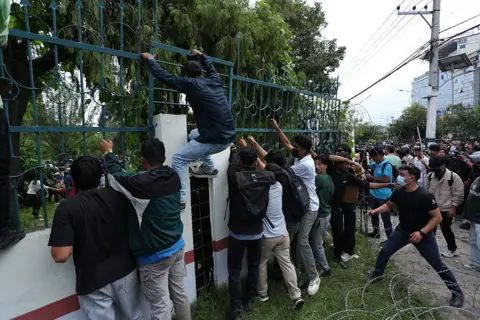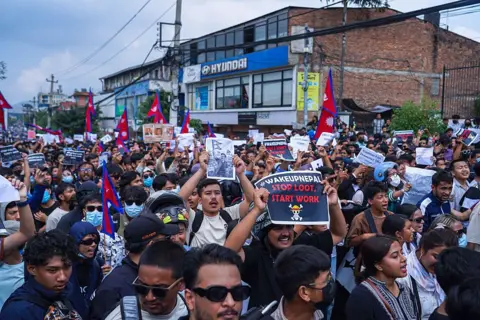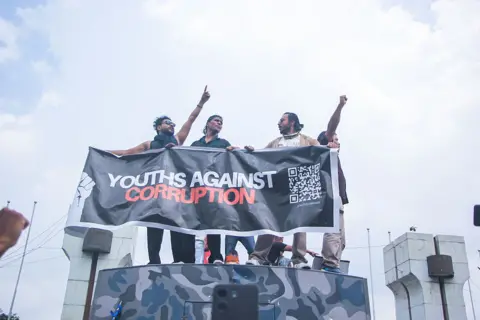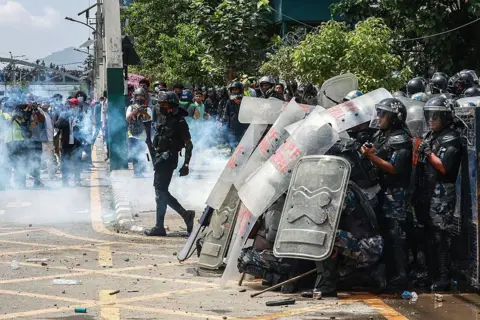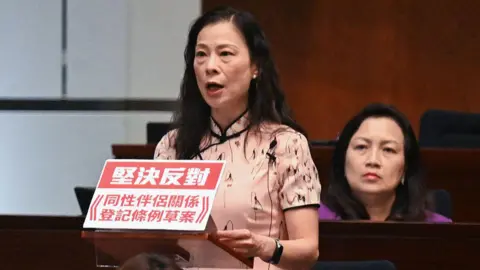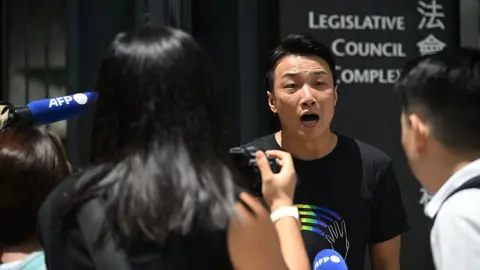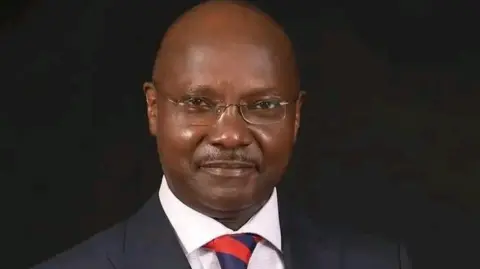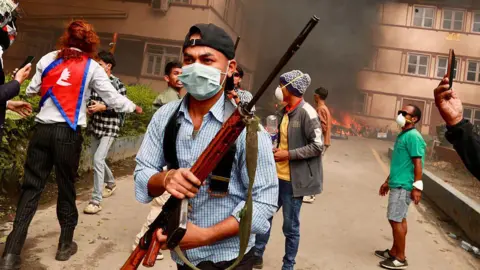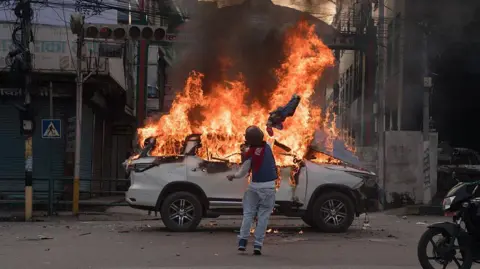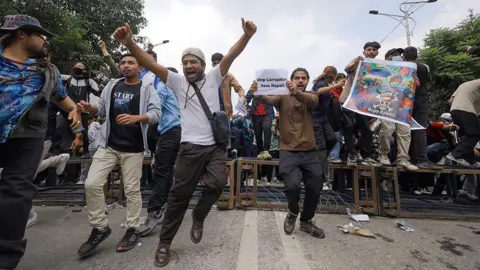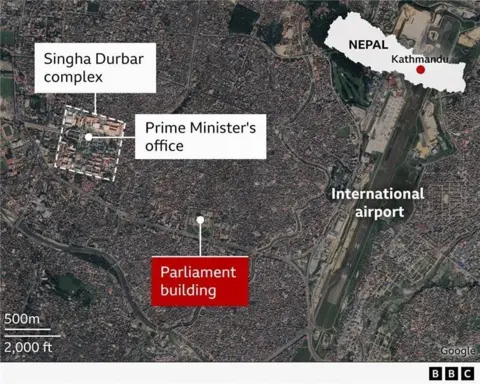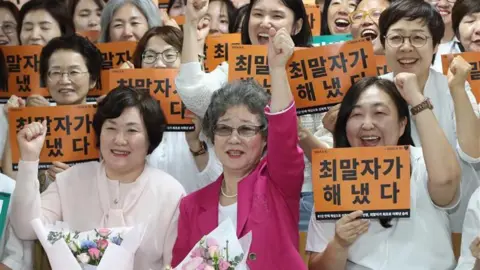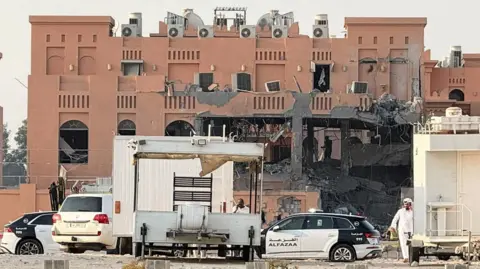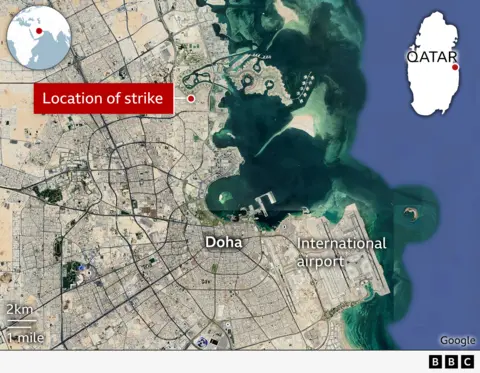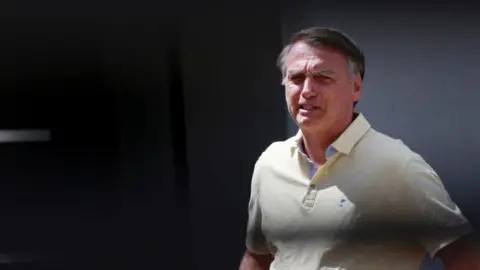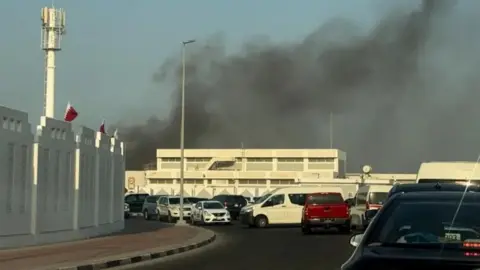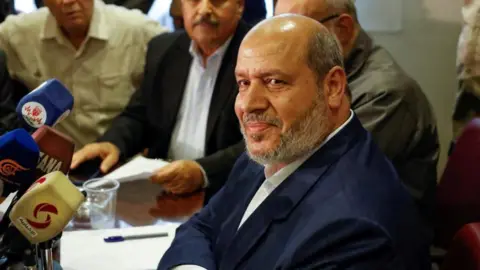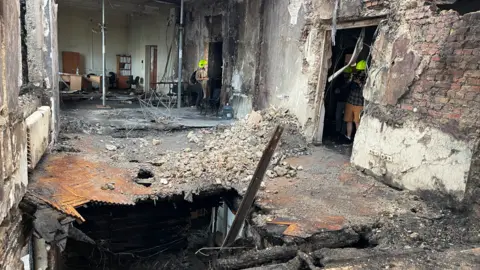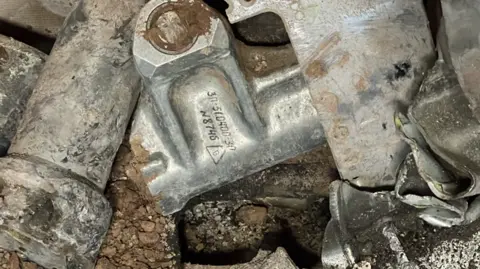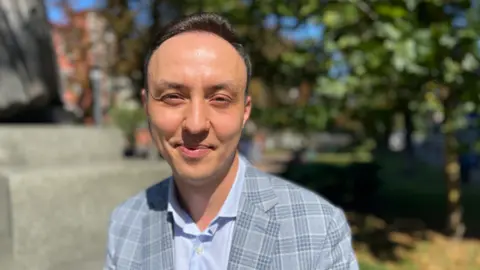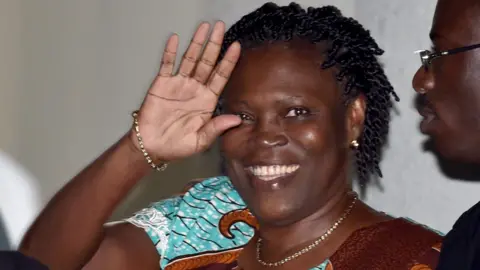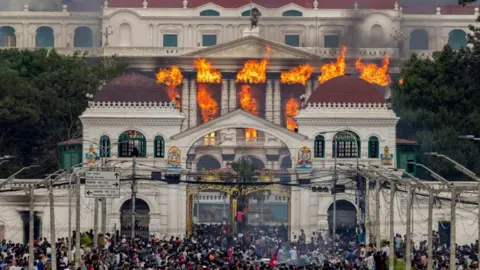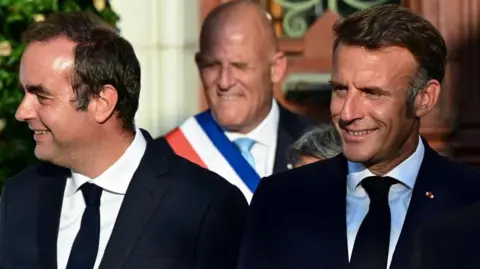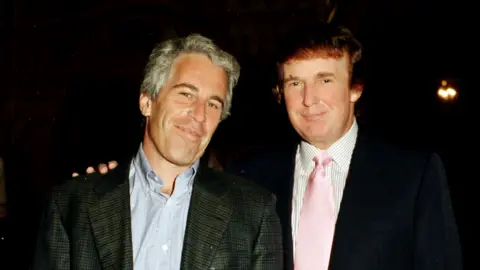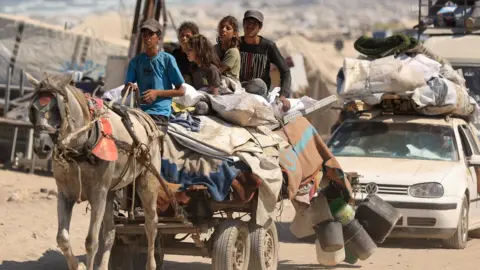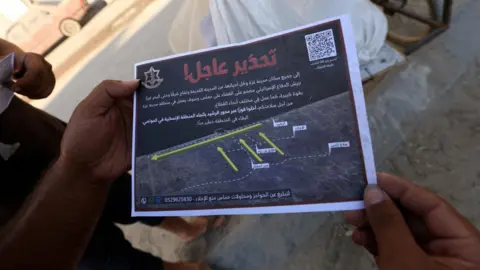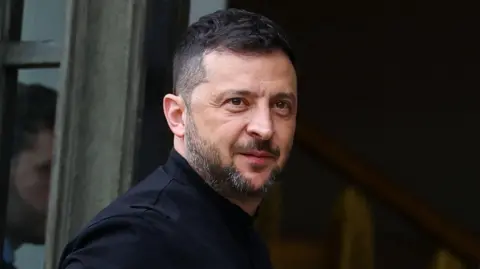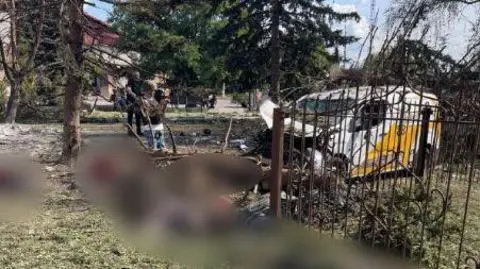Charlie Kirk has died after being shot at Utah university event, Trump says

 Getty Images
Getty ImagesConservative activist Charlie Kirk has died after being shot at an event at Utah Valley University, President Donald Trump announced on social media.
"The Great, and even Legendary, Charlie Kirk, is dead," the president wrote on Truth Social. "No one understood or had the Heart of the Youth in the United States of America better than Charlie."
Kirk, a fervent supporter of Trump, was the founder of Turning Point USA, a group that seeks to spread conservative ideas to students on US campuses.
Officials say he had just begun speaking when a single gunshot rang out. Videos verified by BBC show him jolting backwards in his chair as students scatter in panic.
A spokeswoman for Utah Valley University, Ellen Treanor, said the gunfire came from the Losee Center, a building about 200 yards away.
Another spokesman, Scott Trotter, told the BBC: "A single shot rang out in the quad near the food court on the Utah Valley University Orem Campus as Mr Charlie Kirk began speaking at his planned rally."
"We can confirm that Mr Kirk was shot, but we don't know his condition," he said.
BBC Verify has confirmed the authenticity of several videos of the shooting which have been posted online.
One video shows students crowded around a white tent emblasoned with the words, "THE AMERICAN COMEBACK" and "PROVE ME WRONG".
Charlie Kirk can be seen sitting alone under the tent with several others standing nearby.
In another video verified by the BBC, Mr Kirk is seen speaking at the rally for around four seconds, before a single gunshot is heard.
He then appears to jolt backwards in his chair, before the camera pans away and the crowd begins to run in panic.
According to CBS, the BBC's US partner, Mr Kirk was heard discussing gun violence in the US in the moments before he was shot.
"Do you know how many mass shooters there have been in America over the last ten years?" one audience member asks him.
"Counting or not counting gang violence," he responds, before the shot rings out.
As the news broke, politicians from across the political spectrum, as well as right-wing influencers, condemned the attack.
"FBI and ATF agents are on the way. PRAY FOR CHARLIE," wrote Attorney General Pam Bondi, the highest-ranking US law enforcement official.
Health Secretary Robert Kennedy wrote: "We love you Charlie Kirk. Praying for you."
California Governor Gavin Newsom, a Democrat and one of Trump's top political rivals, called the attack "disgusting, vile, and reprehensible.
"In the United States of America, we must reject political violence in EVERY form."
A former Utah congressman who witnessed the attack described to Fox News how "everyone hit the deck" and "scattered" after the gunshot was heard.
"The shot came straight at him," Jason Chaffetz said, adding he had talked to Kirk just before the event started.
At the White House, several of Trump's press office staff reacted with visible shock.
One aide exclaimed, "Oh my god, Charlie Kirk has been shot!" - drawing gasps from colleagues.
